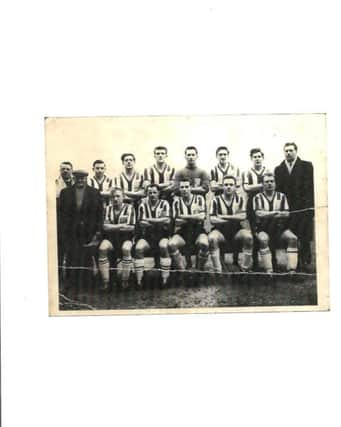Nostalgia: A period of great success for Chorley FC


Guardian reader Wilf Riley sent us this photo he acquired from ‘Big Jack’ Cross’s son David Cross, of Lostock Hall.
Albert ‘Big Jack’ Cross, now 88, is pictured back row fourth from the left.
Advertisement
Hide AdAdvertisement
Hide AdHe played for Chorley FC from 1952 to 1962 whilst working in the cotton mills as an engineer on the looms.
Wilf says: “Chorley plied their trade in the Lancashire Football Combination – ‘The Combie’, as it was known – and they possessed a prolific centre forward, in the style of Nat Lofthouse, namely Peter Watson, pictured centre, front row.
“Peter scored 70 goals one season, these scoring feats are unheard of, in today’s comparable Leagues, The North West Counties FL/Northern Premier League.”
David, of Lostock Hall, says: “Dad originally played for Lostock Hall and was asked to join Chorley FC by scouts.
Advertisement
Hide AdAdvertisement
Hide Ad“He was centre forward at first but then they put him back to centre half.
“He was called Big Jack because he was 6ft 2 ins.
“His highlight was the team winning three trophies in one season. They were in the junior cup final four times and won it three times. They also won the Lancashire Combination League twice.
“When they played the final of the Junior Cup they went to Ewood Park in Blackburn. It was a night match and he fell asleep on the coach. They won the match.
“On the way home, the coach dropped him off in Leyland so he had to walk two miles to Lostock Hall. It was a very tiring day. They also played Wigan Athletic at Victory Park in front of 9,000 people which was massive. We would not get near that now.
Advertisement
Hide AdAdvertisement
Hide Ad“Another memory dad had was of Harry McShane bringing his son, the now famous actor Ian McShane, to training when he was eight or nine.
“Dad also played a benefit game and got £140 which was a lot of money in those days.”
